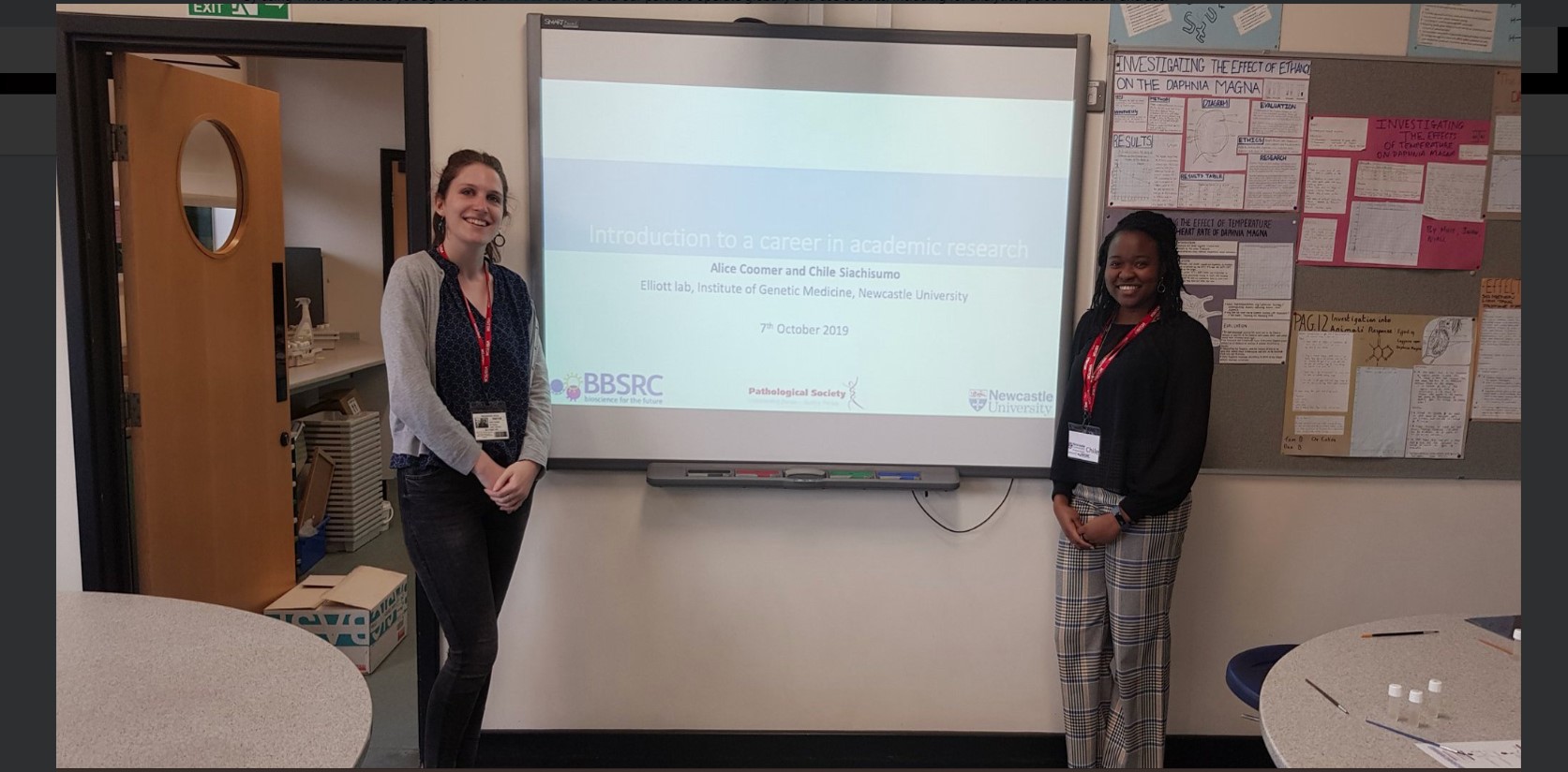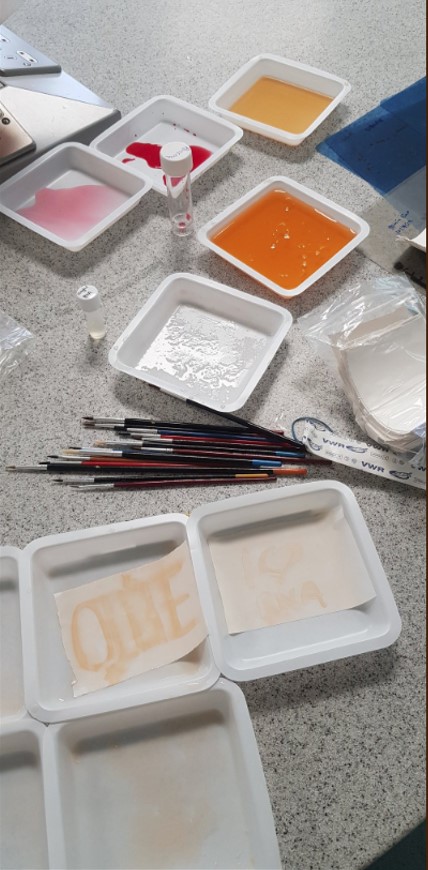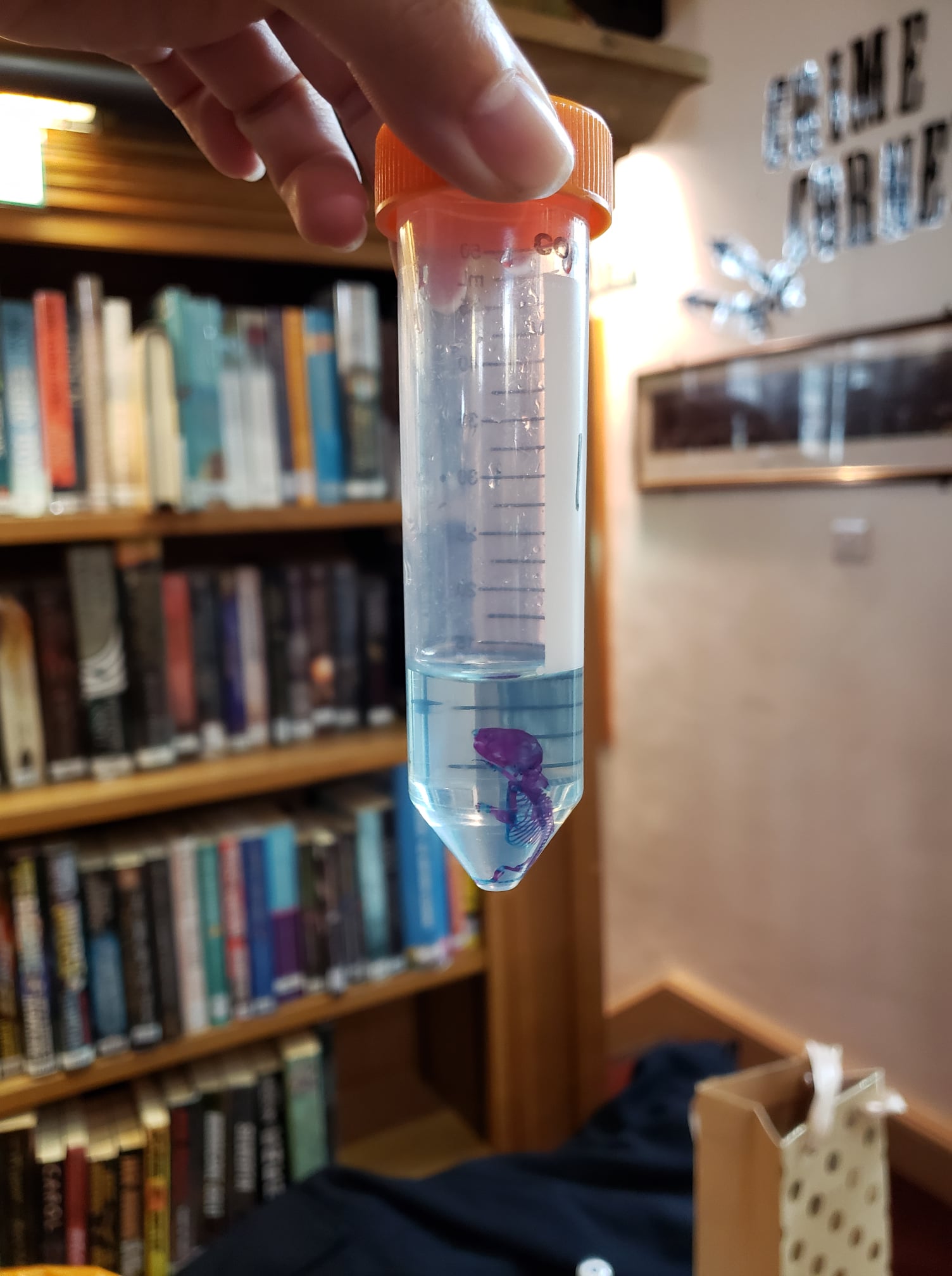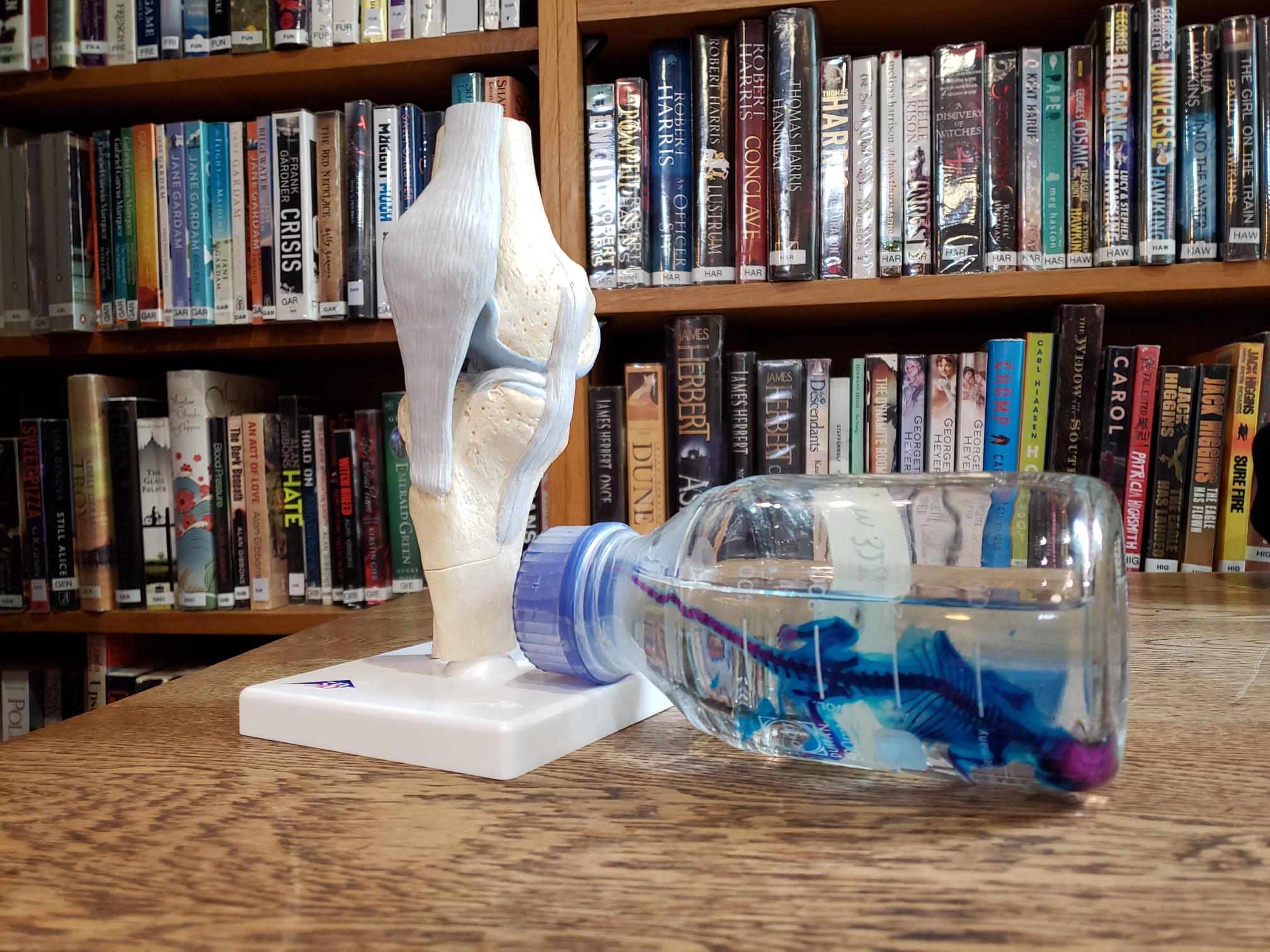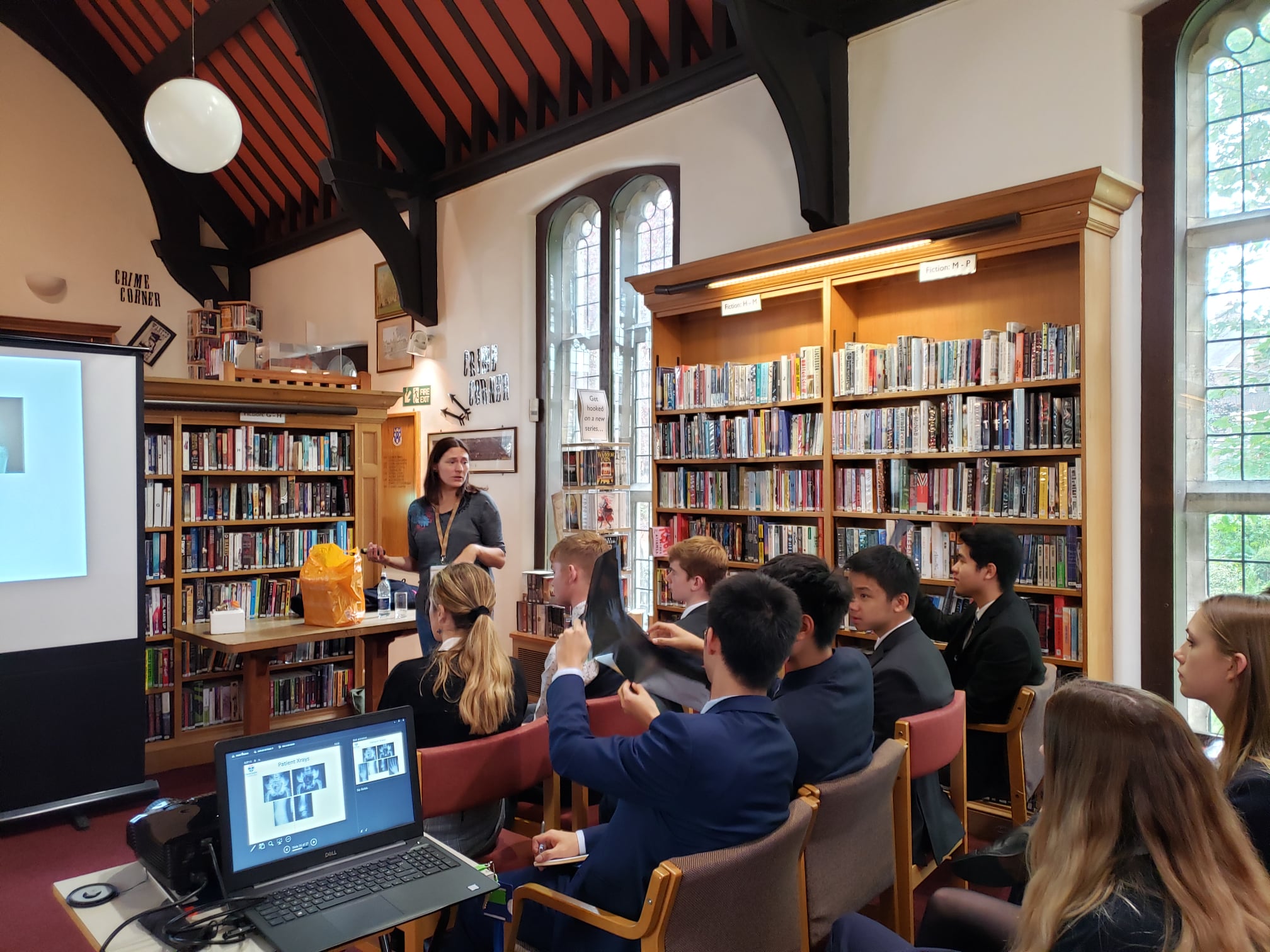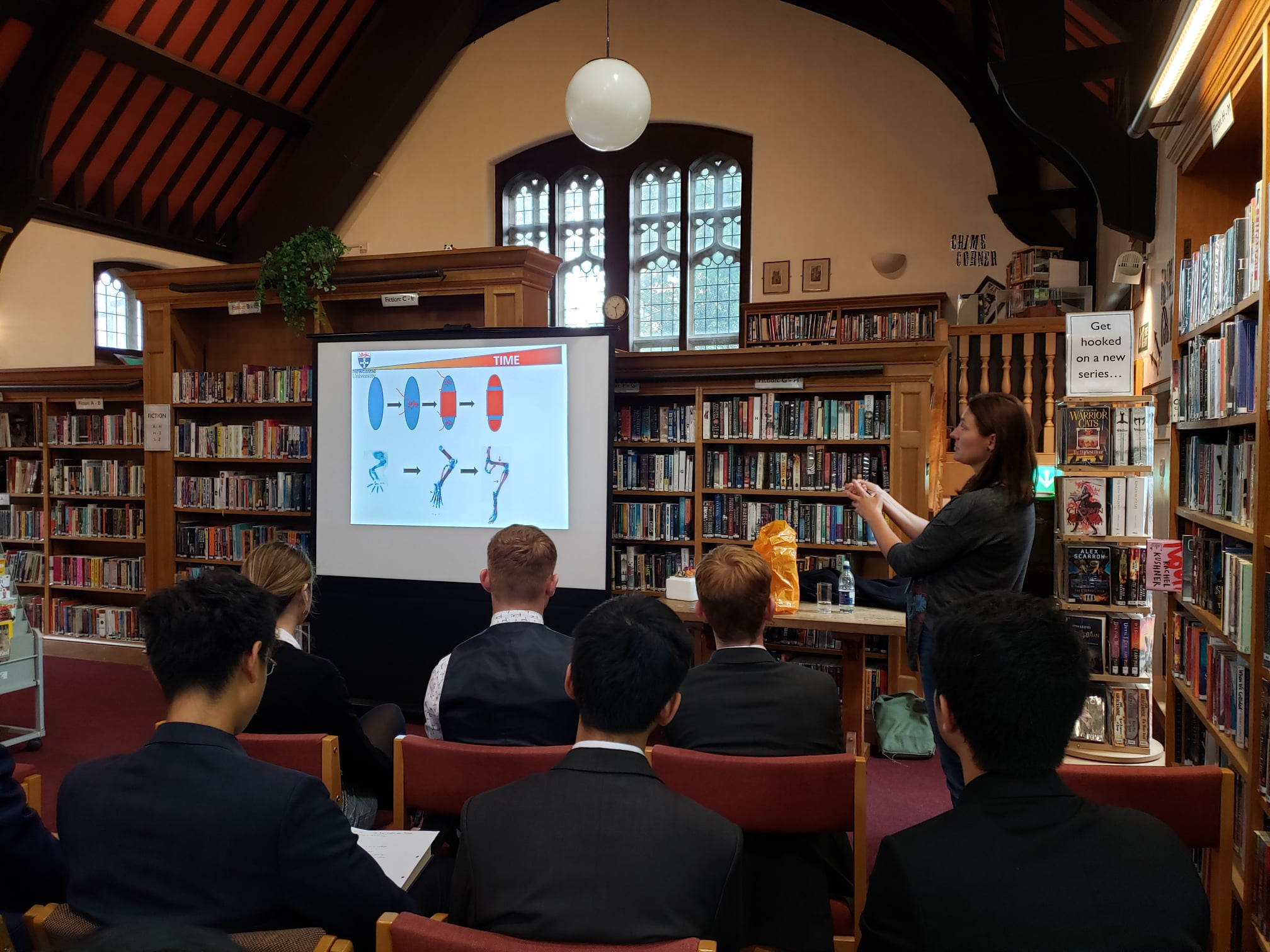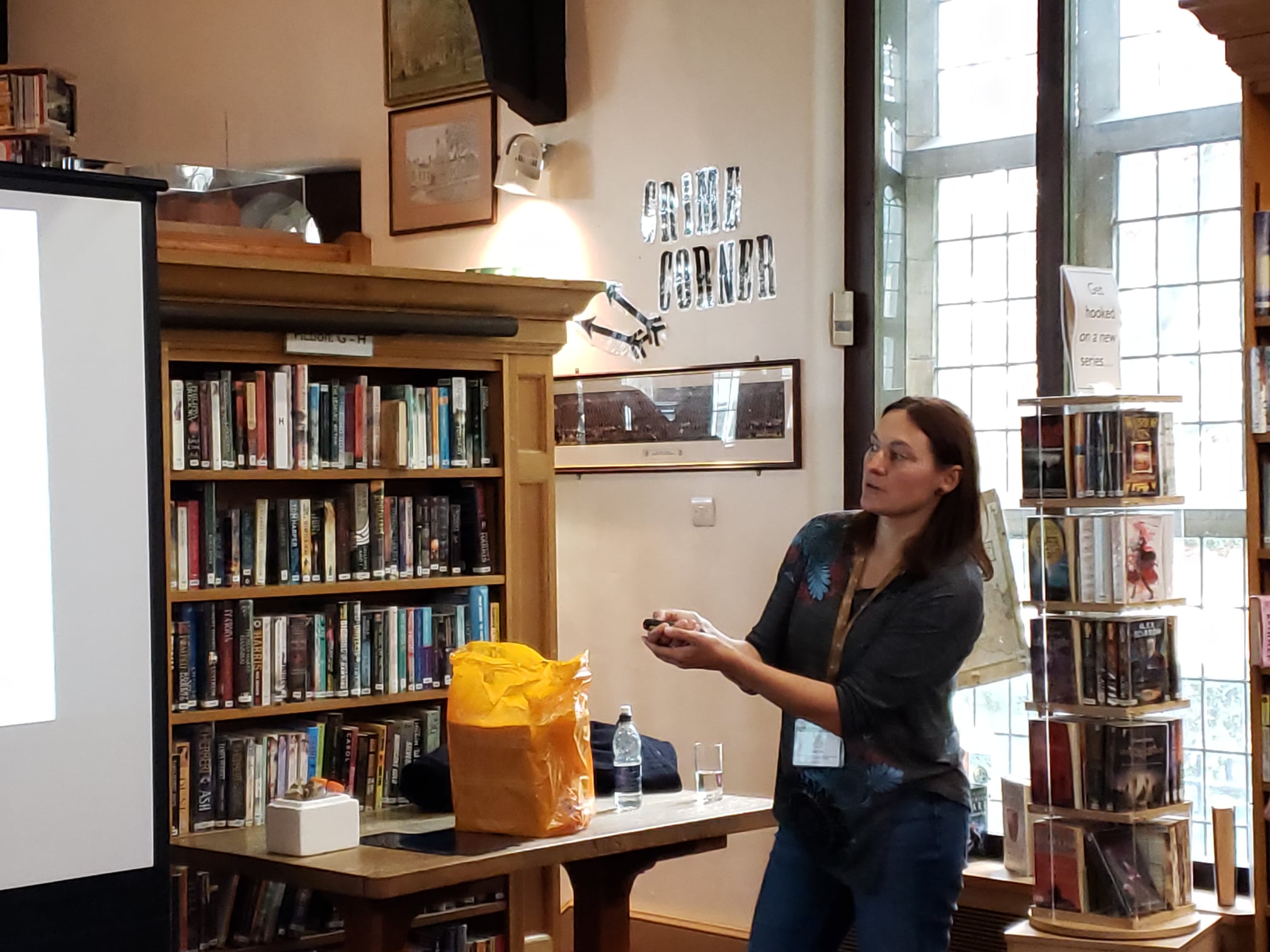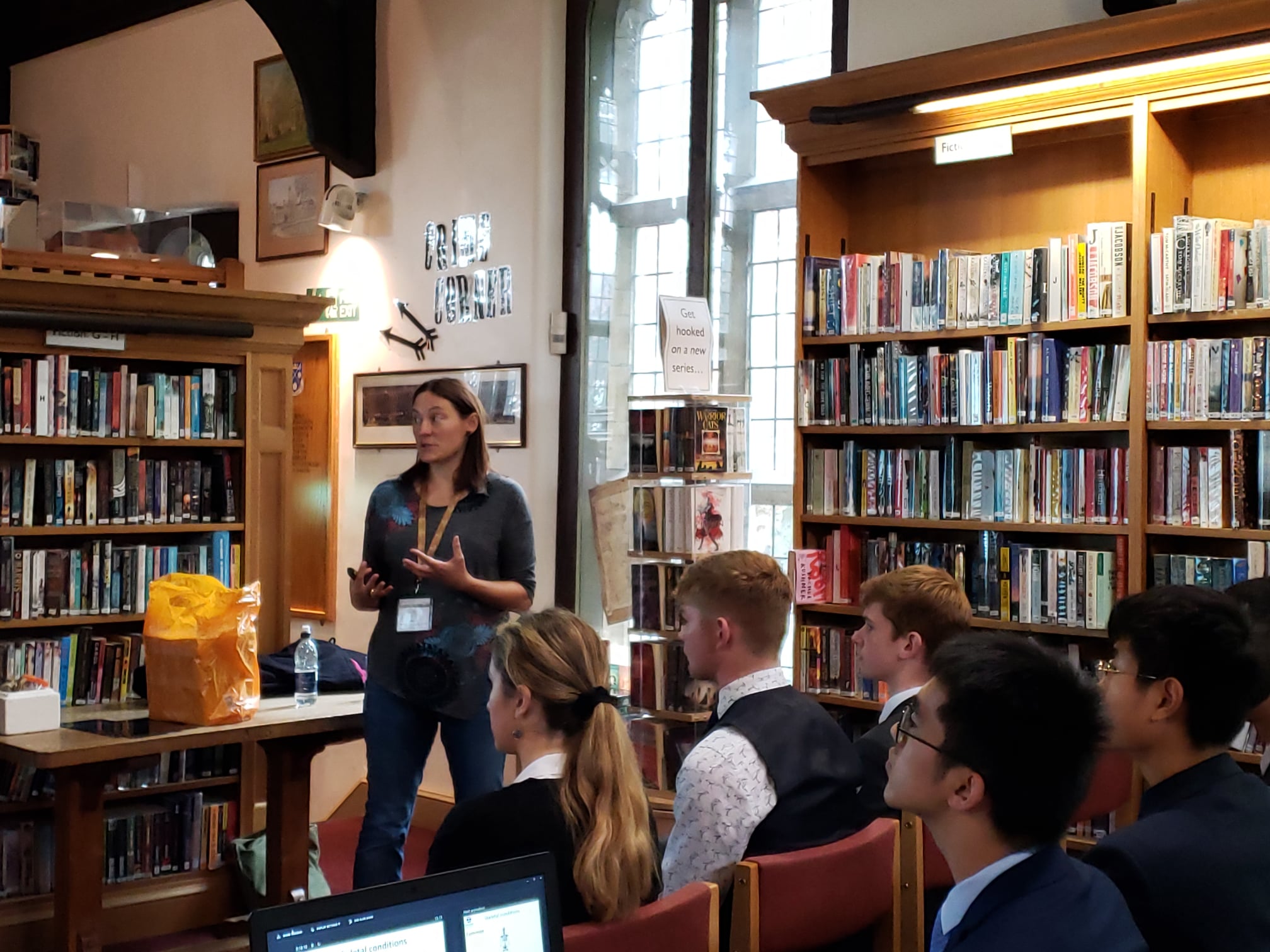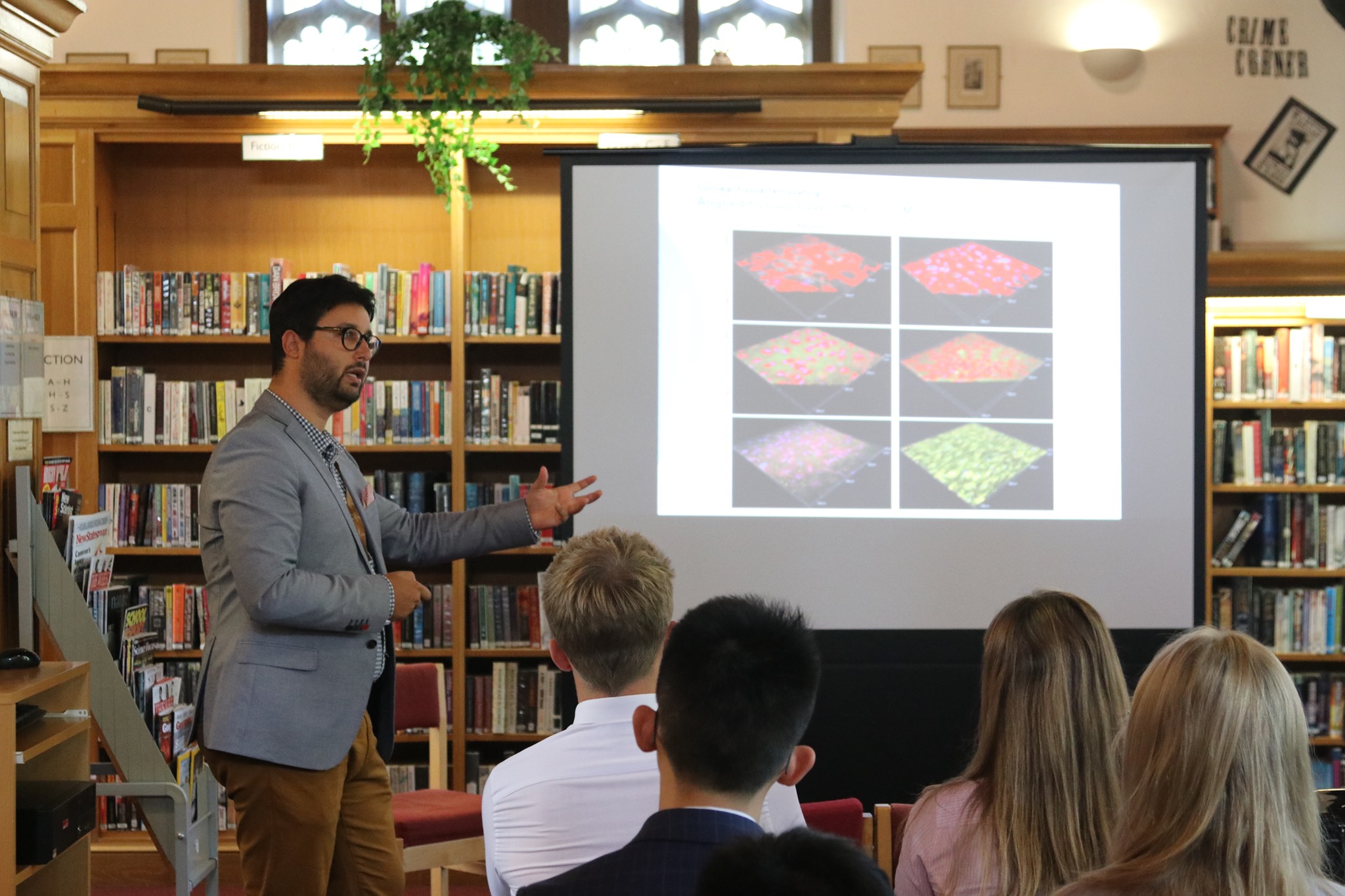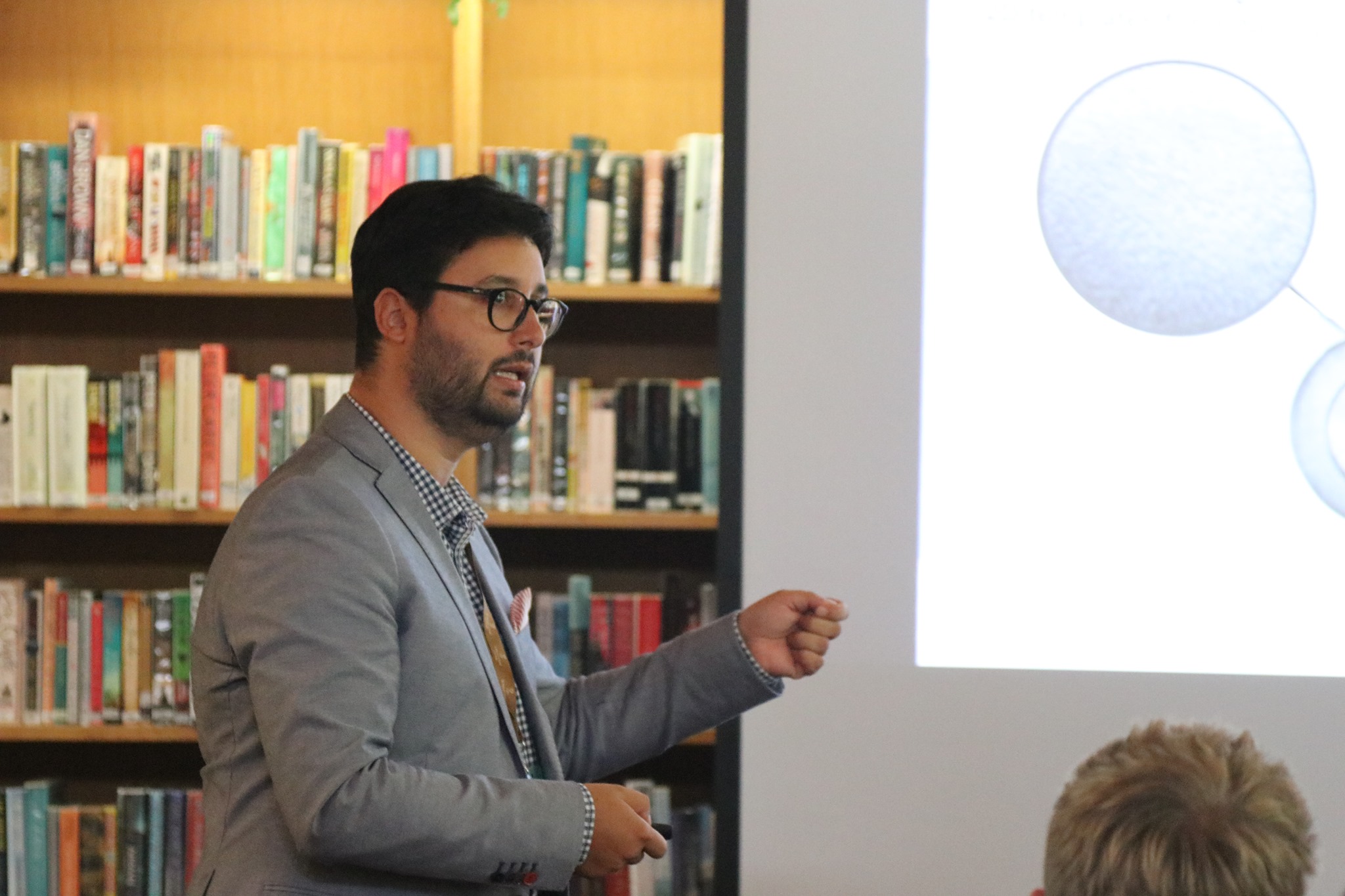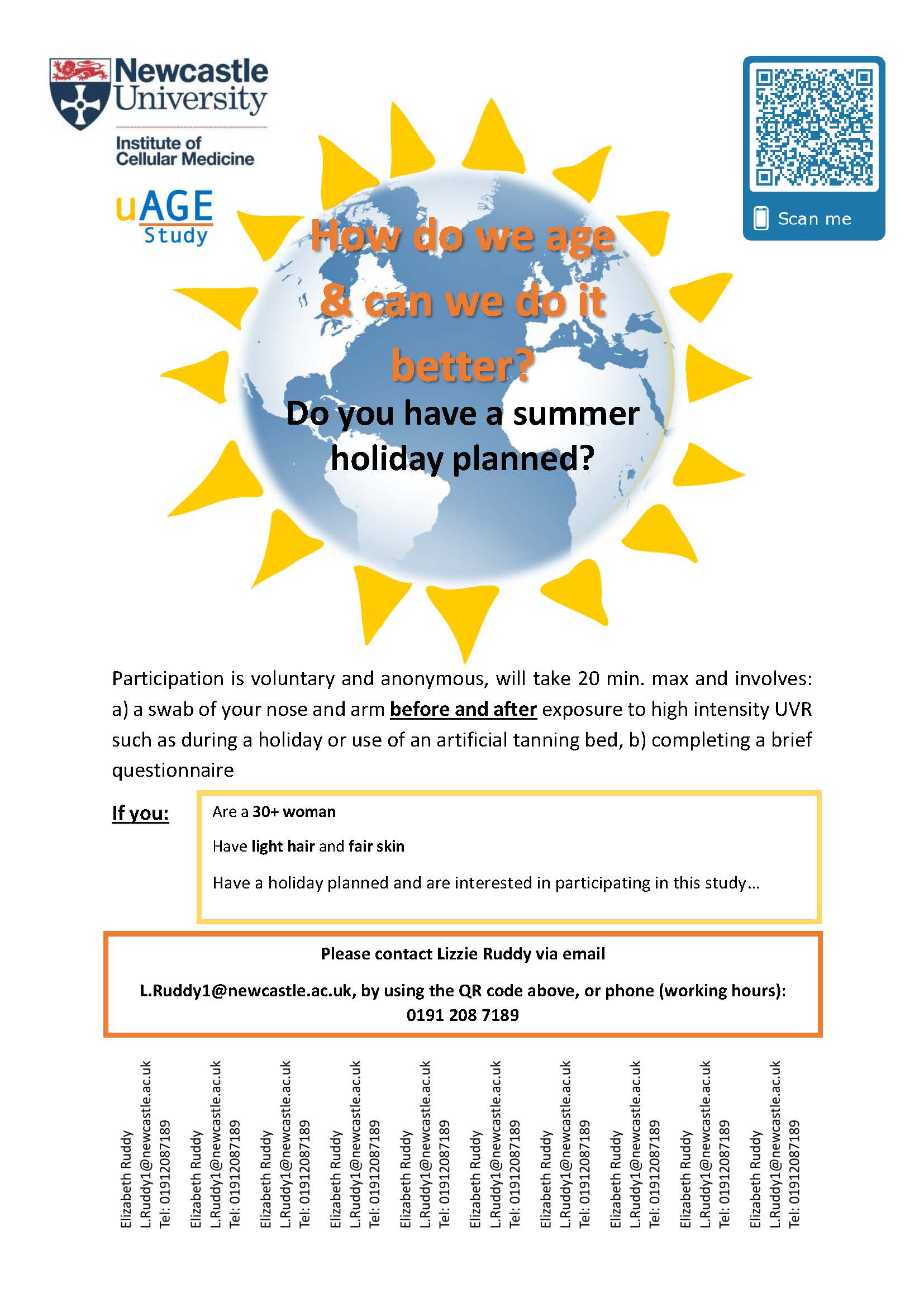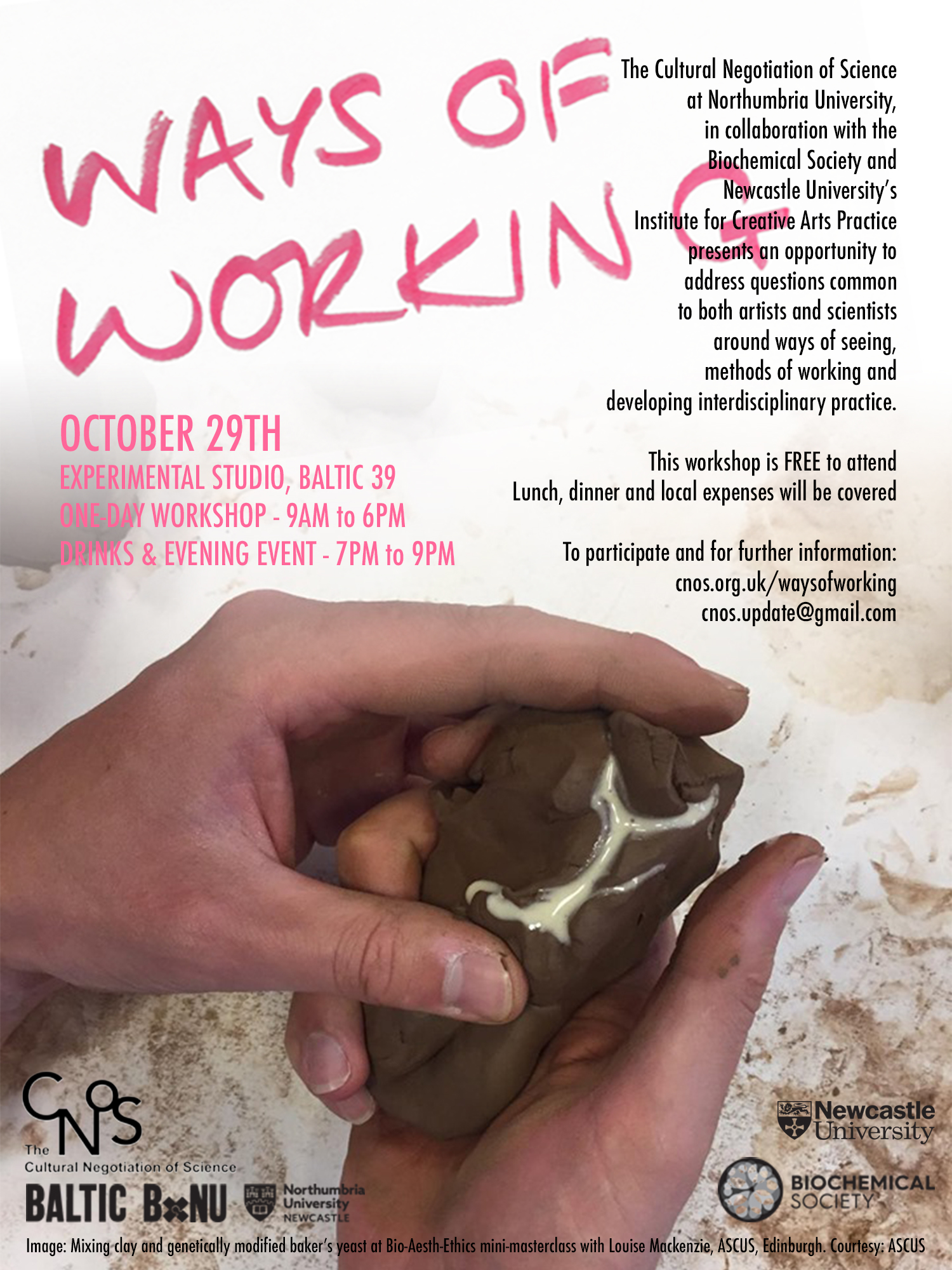
The Cultural Negotiation of Science (CNoS), Northumbria University are hosting a one-day workshop and evening event in collaboration with the Biochemical Society and Newcastle University’s Institute for Creative Arts Practice (NICAP) that will take a practical approach to exploring ways of working across the arts and sciences.
“Ways of Working” This workshop presents an opportunity to address questions that are common to both artists and scientists – broader, ethical questions around ways of seeing, methods of working, and developing truly interdisciplinary practice. Whilst acknowledging that both practices are creative, the workshop will focus on ‘ways to practice’ that allow for time, space, error and specifically, what we can learn from questioning existing methods of working. Often, workshops that bring together researchers in the arts and sciences focus on illustrating or interpreting science. CNoS aims to challenge this approach through finding ways in which, from a basis of common ground, the arts and sciences can learn from each other. With an ethos of open-ended experimentation, engaging in critical dialogue around common themes, we will host a workshop approach that is research-led and exploration driven rather than outcome driven. Through activities that focus on thinking and making strategies and film documentation of participant activities and discussions, workshop participants will develop communication techniques and form process-led methodologies that will help them to arrive at critical questions that can form the basis of longer-term projects.
The workshops will build on the strengths of the CNoS’ existing inter-disciplinary workshop capabilities drawing on the experience of CNoS researchers, such as Dr. Louise Mackenzie and Dr. Daksha Patel (availability tbc) as demonstrated in the interdisciplinary artist-led genetic modification workshops: Transformation – Thinking through Making with Life, participatory sound and bio-media workshops: Tentacular Resonances, the perception of medical data capture: Biorhythmic Drawing, visual literacy workshops: The Art of Observation and the recent Bio-Aesth-Ethics mini-masterclass led by Mackenzie as part of ASCUS and Edinburgh University’s Bio Design Lab. This one-day event will draw on the broader network of CNoS practitioners and other members of Northumbria and Newcastle arts faculty in working with scientists towards innovative approaches to interdisciplinary research.
Objectives
- Identify shared interests in common themes across art/science, e.g. climate crisis / mental health / genetic determinism / inequality / capitalism and the pharmaceutical industry (e.g. Sackler) / circular economy
- Form collaborative cross-disciplinary pairs/groups
- Develop process-led methodologies and communication/translation strategies
- Identify critical questions for interdisciplinary research projects
- Produce 2-3 minute ‘taster’ film or presentation
This workshop is intended as a primer for ongoing collaborative relationships, leading to new interdisciplinary ways of working that will inform project-based outcomes. For example, CNoS has established a new format of art/science collaboration through Black Box, an ongoing science-themed sculptural cinema and performance project. During development of this project we identified the need to pose questions, rather than generate answers, in the public transmission of art and science. This collaborative workshop therefore could provide a means to connect artists and scientists towards the production of collaborative public-facing outputs (film, performance, sculpture, sound works, etc) that may be premiered at a future iteration of Black Box.
Provisional Outline Programme:
Morning (09:00 – 14:00): BALTIC 39 Experimental Studio
Introduction
Guest Presentation/Case Studies
Group Activity – Meet/Mix ‘Speed Date’ style session to share ideas around common themes
Networking/Idea Exchange over Lunch
Afternoon (14:00 – 18:00): BALTIC 39 Experimental Studio and Northumbria University Campus
In pairs/teams:
Brief research exploration exercise to set pace for afternoon
Thinking through making: self-directed activities in film / sculpture / performance / lab-work etc.
Presentation and feedback to group
Continued research exploration
Evening Event (19:00 – 21:00): BALTIC 39 Experimental Studio
Film screening and/or performance (guest presentation)
Discussion/drinks
To register, please visit: CNoS website or survey: https://www.surveymonkey.co.uk/r/TNWHBF8

